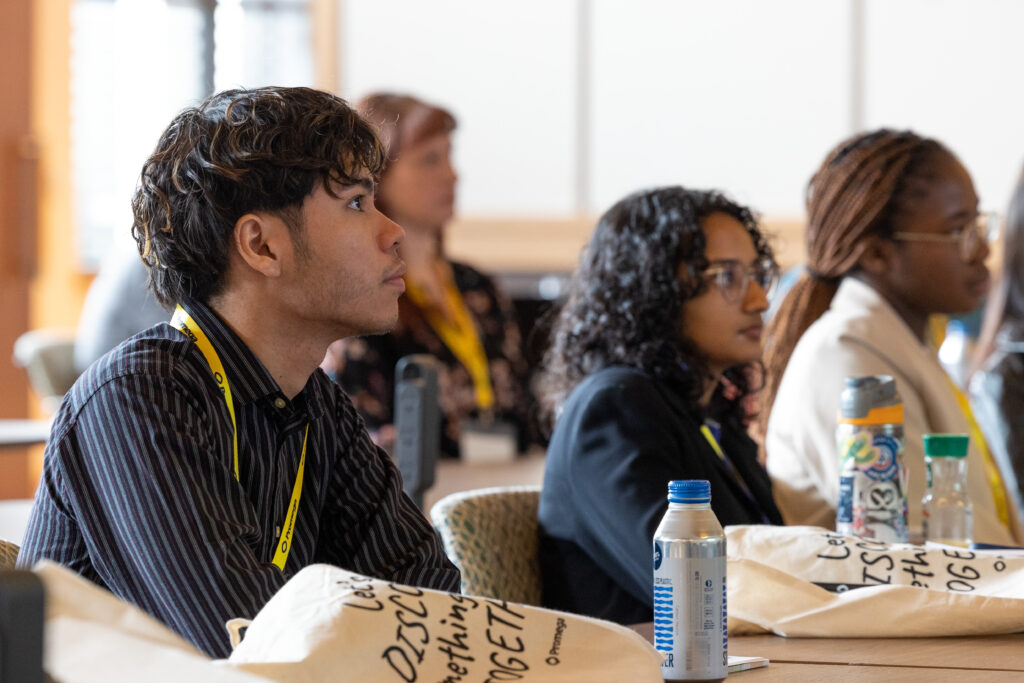
When six undergraduate students from across the country convened at Promega Madison to present their research, several of them were surprised to see Promega CEO Bill Linton in the audience.”
“I’ve never interacted with a biotechnology company like this, and then the CEO shows up,” says Valeria Sanchez Estrada. “We actually discussed ChatGPT and how AI and machine learning can advance biology research.”
Valeria, a second-year student from St. John’s University, was a 2022 recipient of the Diversification Of Our Research Scientists (D.O.O.R.S.) Scholarship, provided the BioPharmaceutical Technology Center Institute and Promega North America. The scholarship provides ten students with a $5,000 award that can be used towards educational fees, books and supplies to support their scientific education. The scholarship is open to undergraduate students from underrepresented backgrounds pursuing a biotechnology-related major.
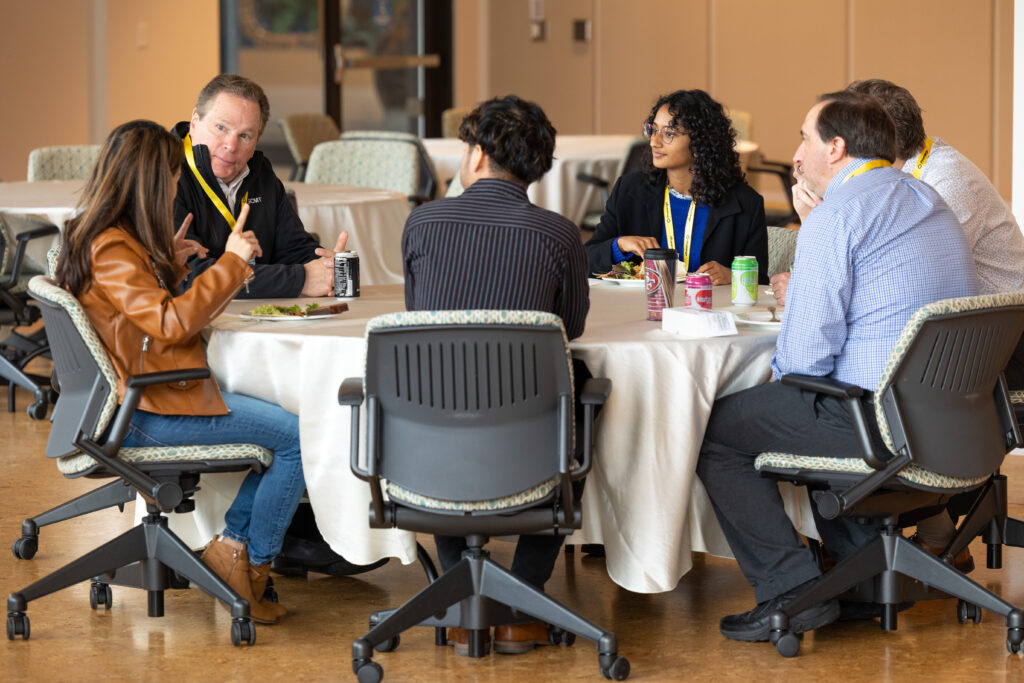
On March 24, 2023, scholarship recipients were invited to Promega Madison for the first in-person D.O.O.R.S. Scholars Day. In addition to presenting their research, students had the opportunity to meet with Promega R&D scientists and tour the beautiful Kornberg Center. Overall, the event was a day of celebration and building connections between outstanding students and the biotechnology industry.
“I imagined industry just being about hard science and lab time,” says Chris Provido, a third-year student from Bowie State University. “But Promega’s values showed me today that although we’re all scientists, your humanity is just as important, and it’s important to find a balance between hard science and being human.”
Student Research Showcase
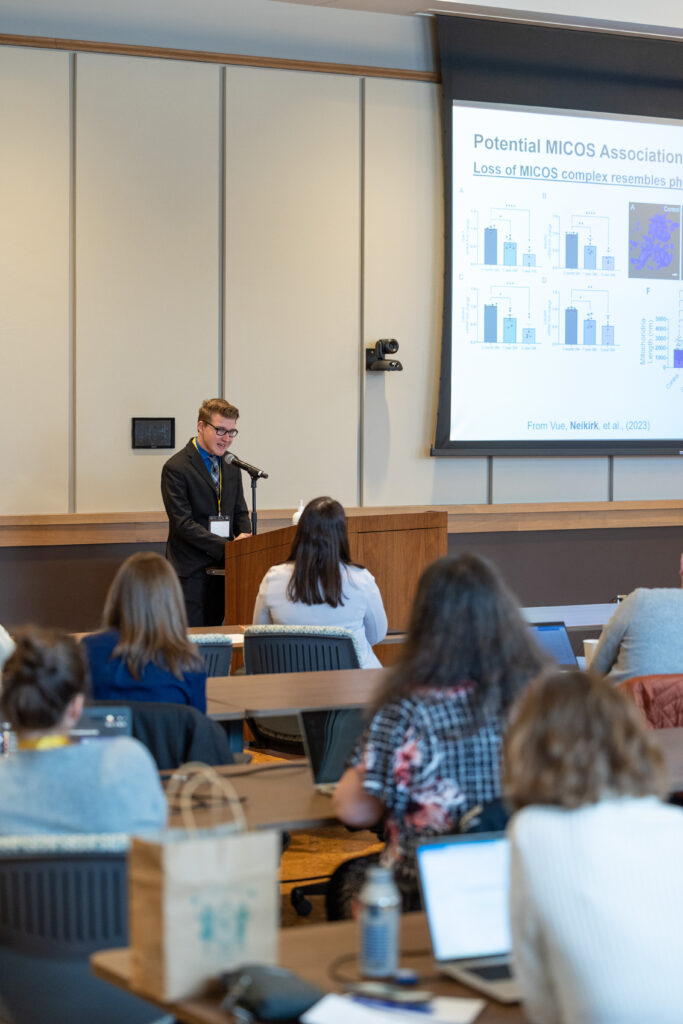
D.O.O.R.S. Scholars Day began with presentations from the six students present, as well as one video from a student who was unable to attend in-person. The audience included R&D scientists, applications scientists, many scientists from sales and marketing, CEO Bill Linton, and the Vice Presidents of R&D, Communications and Commercial Excellence.
Sergio Gonzalez Jr., San Francisco State University, delivered his presentation in a pre-recorded video. Sergio studies the effects of erythritol, a sweetener that has been linked to cardiovascular problems. Though he has run into challenges with food formulation, Sergio’s high-throughput setup has shown morphological changes in drosophila larvae following long erythritol exposure.
Valeria Sanchez Estrada, St. John’s University, works with a massive dataset representing interviews and clinical data from a multicenter cohort of pregnant people. She studies relationships between dietary factors and vaginal microbiome composition, and particularly how those factors might be linked with bacterial vaginosis, trichomoniasis, and adverse pregnancy outcomes. Her data has revealed trends among racial groups that could explain differences in pregnancy outcomes between white and black people with a uterus.
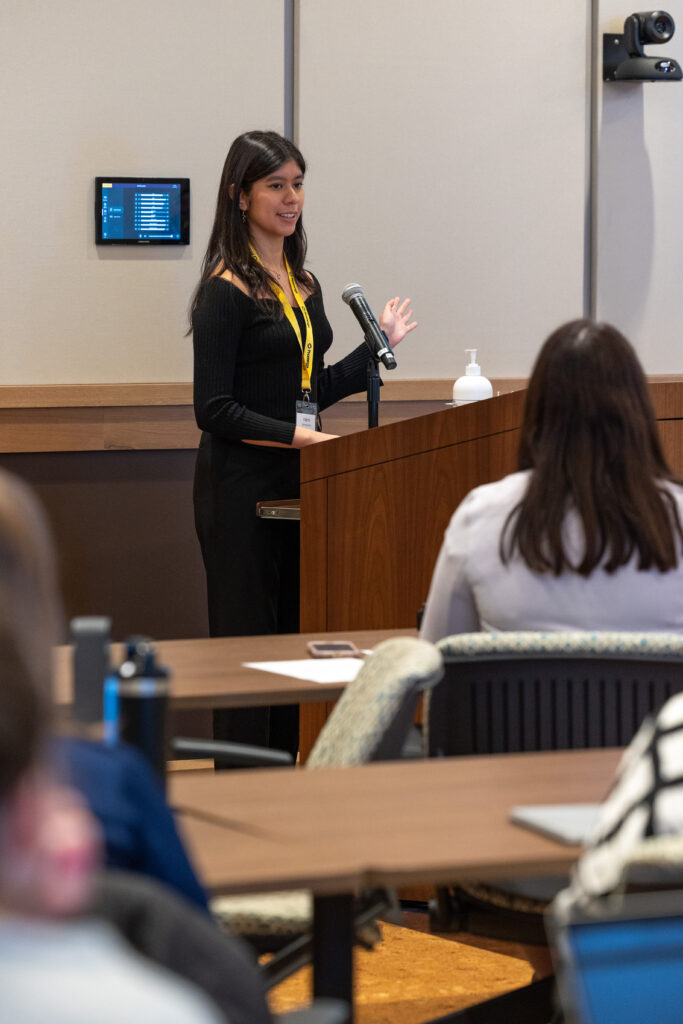
Deborah Ola, University of Calgary, studies malaria and neglected tropical diseases. She’s currently completing the first malaria genotyping study in Ethiopia to use amplicon deep sequencing, an emerging technique that allows her to better genotype low-density clones.
Divya Kashyap, University of Texas – Austin, studies a protein called bone morphogenic protein 2 to determine its effects on the progression of breast cancer and basal cell carcinoma.
Robert Hall, University of Wisconsin – Madison, works in conservation and biobanking. Robert says that reviving a species is difficult even with a fully annotated genome. He described his work with the paca, a South American rodent that could be a promising candidate for biobanking using iPS cells. (Robert was recently recognized in a UW-Madison article highlighting notable 2023 graduates. Read it here.)
Chris Geo Provido, Bowie State University, works in immunology and bioinformatics. He’s sorting through more than 50,000 targets of 250 microRNAs to discover differences between subspecies of bananas, an important crop in his native Philippines.
Kit Neikirk, University of Hawaii, studies the impact of mitochondrial structure on its function. He uses transmission electron microscopy to document the diversity of mitochondrial morphology and find correlations between shape and adverse health events such as heart failure.
Building Industry Connections
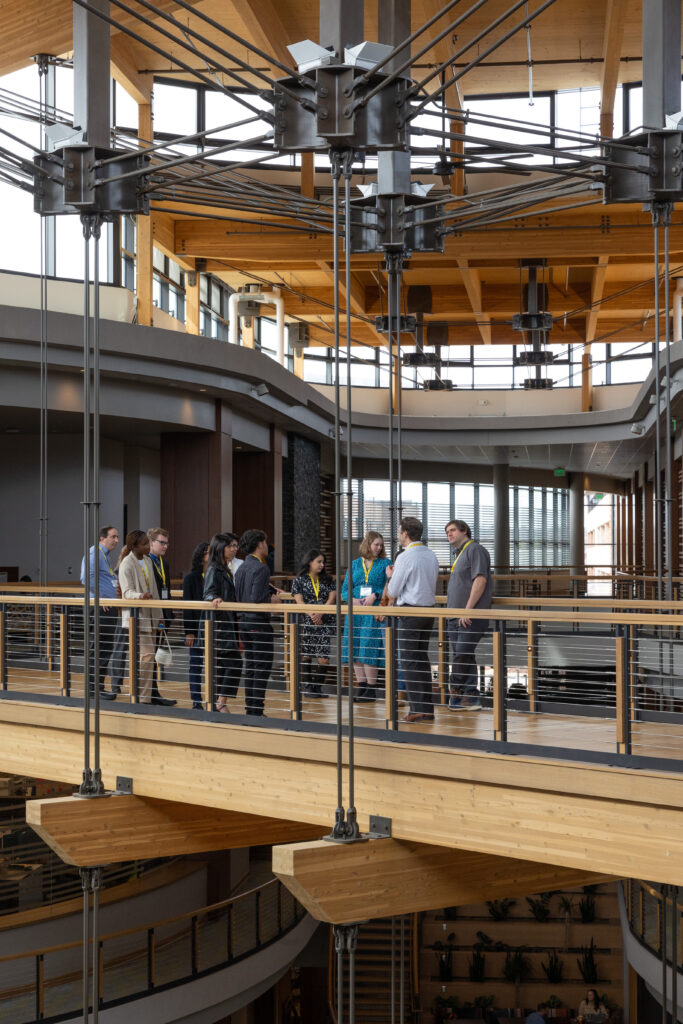
After the presentations, Promega VP of R&D Poncho Meisenheimer led the students on a tour of the Kornberg Center. The group started in the Instrumentation R&D labs, where manager Sydnor Withers described how scientists and engineers work side-by-side to develop products like Spectrum CE System or Maxwell RSC 48. They wandered the Scientific Applications lab, learning about how the group used Virtual Reality to train scientists on various protocols during the COVID-19 pandemic.
In the Advanced Technologies Group lab, Poncho paused at a window to describe the history of luminescence research at Promega. Pulling a red dry erase marker from his pocket, he scribbled structures of luciferin and furimazine on the glass and explained how Promega researchers used directed evolution to create systems that generated brighter signals with less disturbance to native biology.
Outside the labs, the scholars visited the band room, basketball court and greenhouse. Poncho even took the group through the main Kornberg utilities room, pointing out massive geothermal heat exchange systems and the pumps that circulate rainwater throughout the building to be used as grey water.
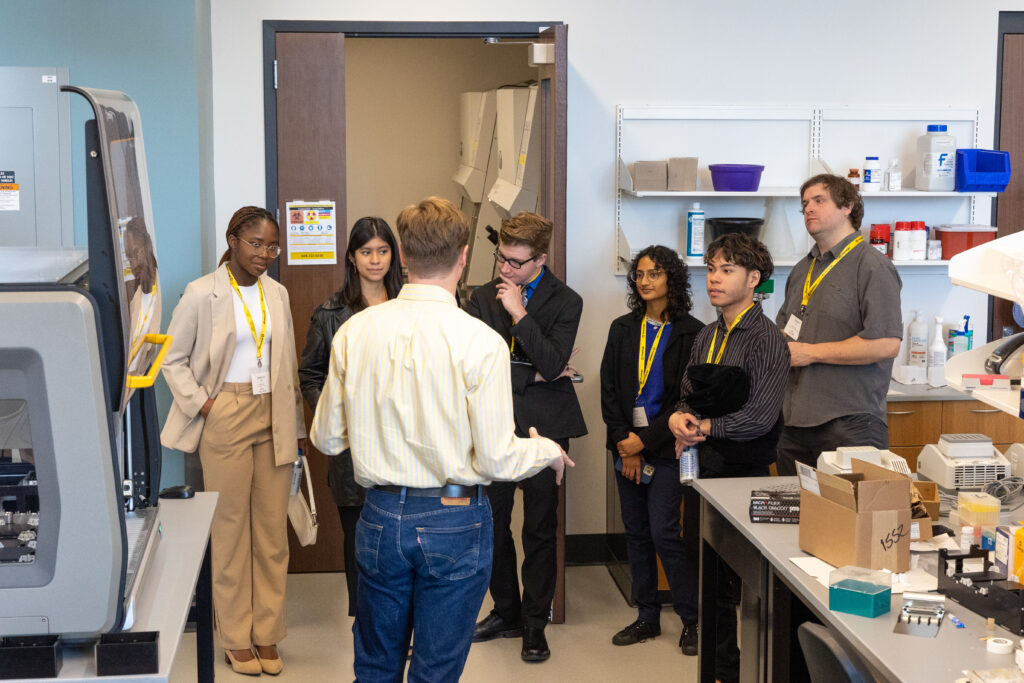
After a taco lunch catered by Promega Culinary, the group split up so each scholar could meet with Promega R&D scientists working close to their research area. They were also joined by the mentors they were assigned at the beginning of the D.O.O.R.S. program, with whom they’ve met regularly throughout the year. These conversations covered all areas of a scientific career – recent technological advances, education, academic and industry careers, and much more.
“My mentor Tom [Kirkland, Sr. Scientific Investigator] has always been there for me, whether it’s my research project or personal stuff,” says Chris Provido. “And Nathan [Fielder, Research Scientist], who I met today, is doing work that’s really in line with my research interests, providing insight into unique pathogens.”
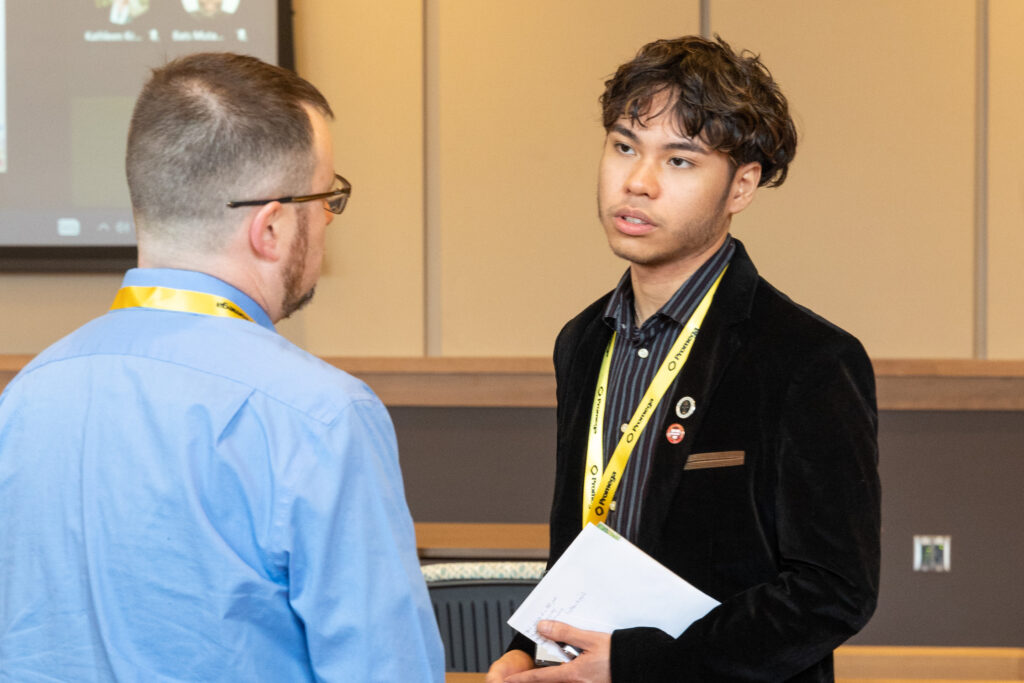
“As an immigrant, when I applied to undergraduate, it was a whole new process for me,” says Valeria Sanchez Estrada. “Looking ahead to graduate programs, my mentor, [Client Representative] Katie Krauska, has helped me gather resources and helped me talk to people who have been through that process so that I don’t feel like I’m doing it alone this time.”
The day ended with a presentation from Tom Livelli, VP of Life Science, on achieving success as a young scientist. Tom shared his own journey through academia to becoming an entrepreneur and described the skills he sees as important for standing out and driving innovation.
The D.O.O.R.S. Scholarship is awarded annually with applications opening in August. To learn more about the scholarship, visit our website.
